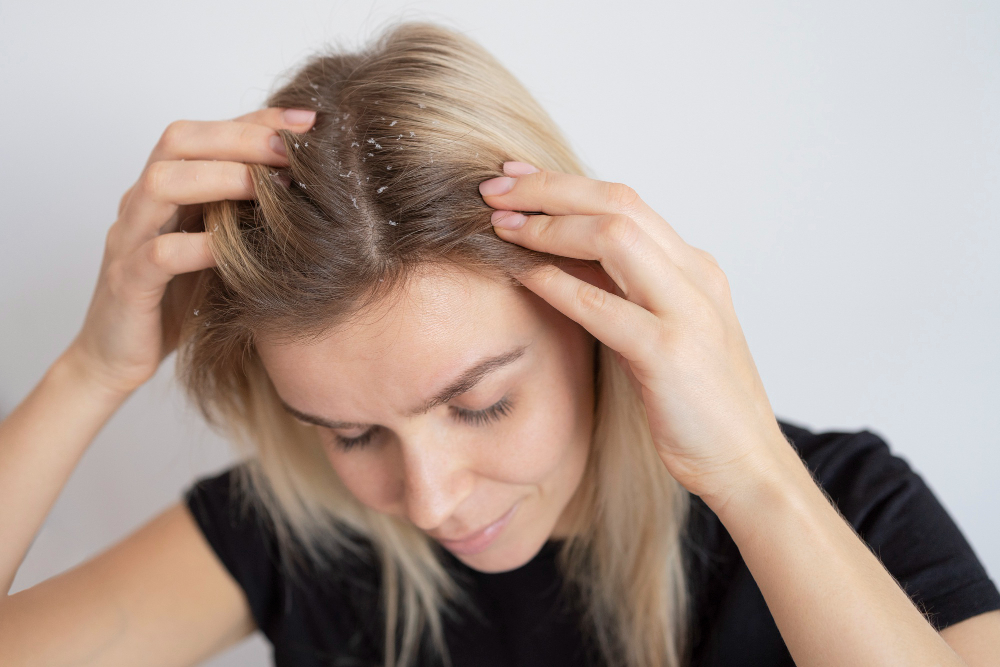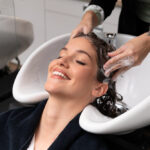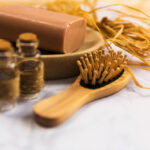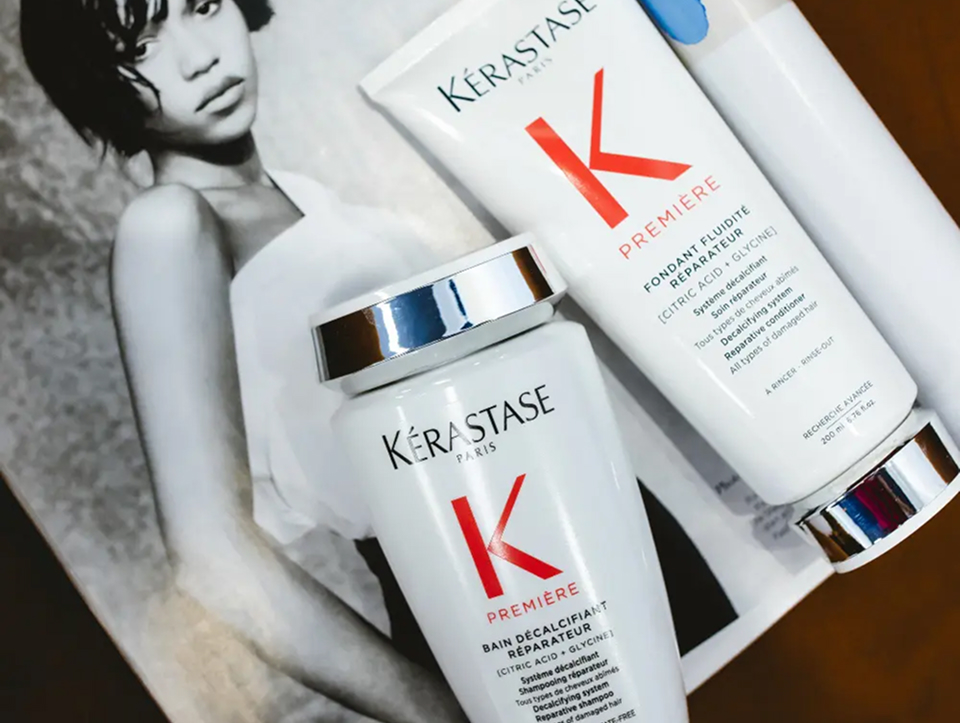Flakes on your shoulders, an itchy scalp, or a tight, uncomfortable feeling can be frustrating, and often embarrassing. A dry scalp doesn’t just affect your confidence; it can also impact your overall hair health, making your hair look dull or even contributing to shedding.
At Hāste Urban Hair Spa, we treat many clients for dry scalp, offering both professional treatments and guidance for at-home care. Understanding the causes, symptoms, and treatment options is the first step to a healthy, hydrated scalp.
What Is a Dry Scalp?

A dry scalp occurs when your scalp lacks natural oils. Unlike dandruff, which often stems from inflammation or yeast overgrowth, a dry scalp is characterized by a moisture imbalance.
Typical signs include:
- Flaking
- Itching
- Tightness or discomfort
- Tingling or prickling sensations
📌 Tip: Not sure if it’s dandruff or dry scalp? Check out our Dandruff vs Dry Scalp guide.
Why It Matters

If left untreated, dry scalp can lead to inflammation, scalp sensitivity, or even hair shedding. Studies indicate that scalp inflammation may disrupt hair follicle health, highlighting the importance of early treatment.
Common Causes of Dry Scalp
Understanding the underlying cause is crucial for treatment.
1. Over-Washing Your Hair
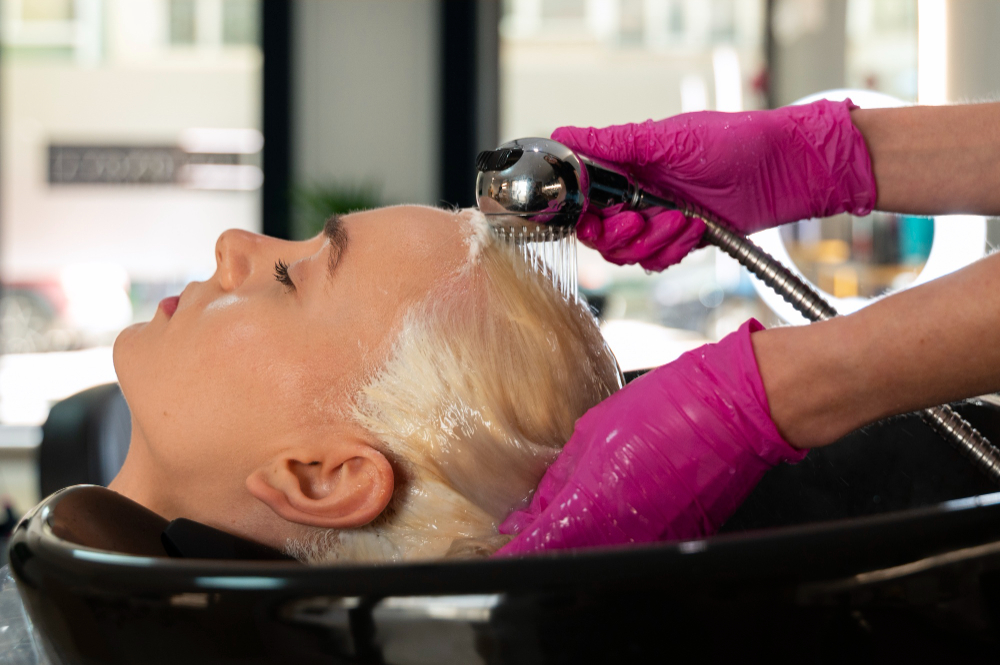
Shampooing too frequently can strip natural oils from the scalp, leaving it dry. Even mild shampoos can exacerbate dryness if used daily.
2. Harsh Hair Products
Products containing alcohol, sulfates, menthol, or eucalyptus can disrupt the scalp’s pH and natural oil balance. Avoid heavy styling products or mousses that leave residue. Learn more about professional vs DIY hair treatments.
3. Environmental Factors

Extreme weather conditions, low humidity, indoor heating, or excessive sun exposure can all dry out your scalp. Wearing hats or using scalp sunscreen in summer may help protect your skin.
4. Medical Conditions

Conditions such as eczema, psoriasis, seborrheic dermatitis, or allergic reactions to hair products can cause dryness.
5. Product Buildup & Styling Products
Excess dry shampoo or leave-in products can block follicles, trapping oils and leading to dryness. Check how to use dry shampoo correctly.
6. Lifestyle & Diet
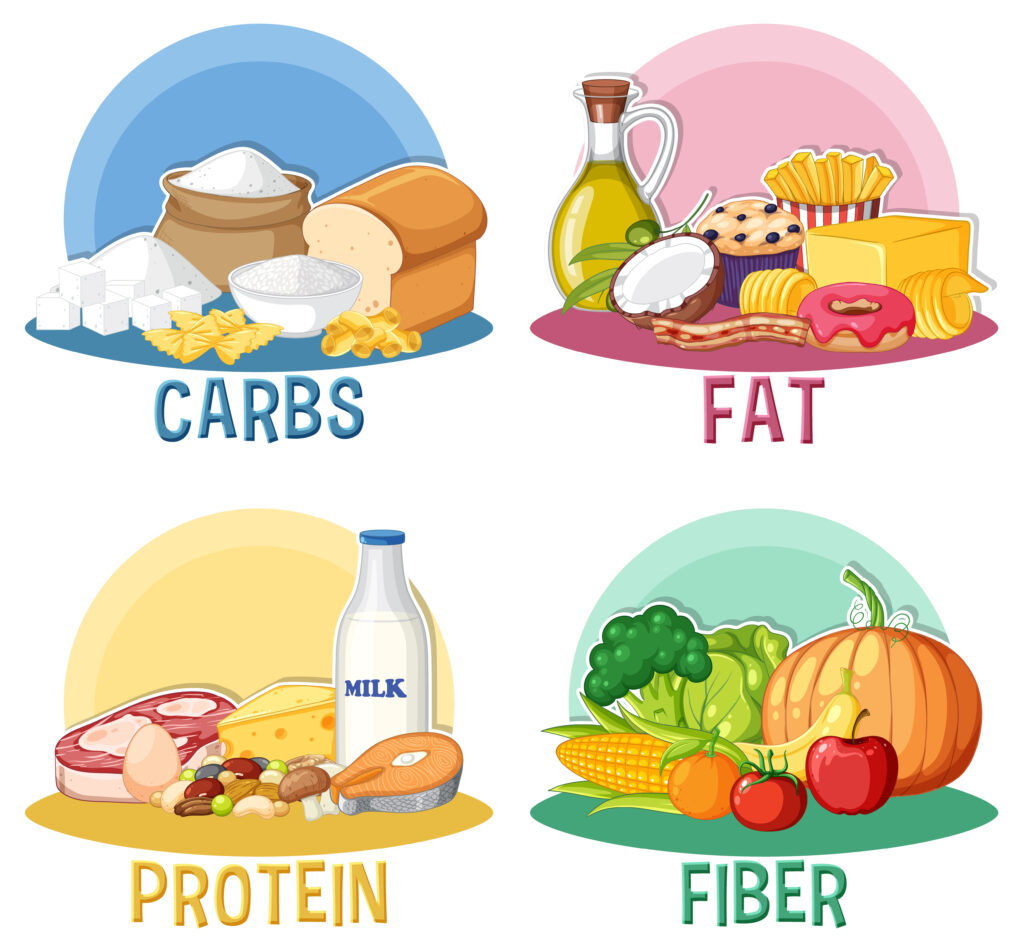
Dehydration, low omega-3 intake, high sugar diets, or stress can impact scalp hydration.
📌 Tip: For oily hair vs. oily scalp, see our guide here.
Symptoms to Watch For
Recognizing the signs of dry scalp early can prevent worsening symptoms:
- Flaking – Fine, white flakes that fall onto shoulders.
- Itching – Persistent irritation, further exacerbated by scratching or stress.
- Tightness / Soreness – Feeling of tautness, especially after shampooing.
- Tingling / Prickling – Early indicator of dryness or irritation.
- Redness or inflammation – May indicate eczema or scalp sensitivity.
📚 A 2021 study published in PubMed Central highlights that sensitive scalp syndrome is often associated with mild and transient unpleasant skin sensations linked to barrier dysfunction and small-fiber neuropathy. This means that both the skin and nerve fibers contribute to scalp sensitivity and discomfort, making early care and targeted treatment essential.
Tip: If these symptoms persist, consult a dermatologist to rule out infections, autoimmune conditions, or underlying neuropathic issues.
Treatment Options for Dry Scalp
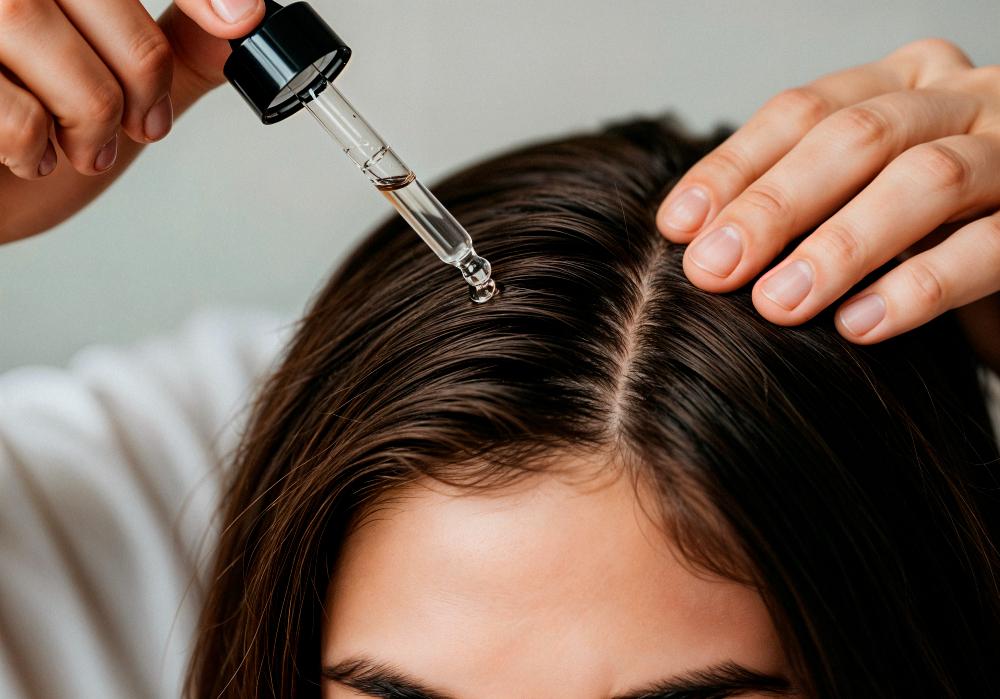
Professional Scalp Treatments
Visiting a salon like Hāste provides customized solutions:
- Cleansing Scrubs – Detoxify and remove buildup.
- Nourishing Oils and Serums – Hydrate and balance scalp pH (learn more about scalp serums).
- Scalp Massage – Improves circulation, reduces tension, and encourages hair growth.
📌 Tip: Book a professional scalp treatment here.
DIY & At-Home Solutions
- Coconut Oil, Aloe Vera, Apple Cider Vinegar – Moisturize and soothe irritation.
- Tea Tree Oil – Anti-inflammatory and anti-bacterial, ideal for mild flaking.
- Scalp Massage – Daily massage improves circulation and removes dead skin.
- Detoxifying Dry Shampoo – Use charcoal-based formulas sparingly to avoid buildup.
📌 Check out these 7 DIY remedies for your dry scalp.
Preventing Dry Scalp
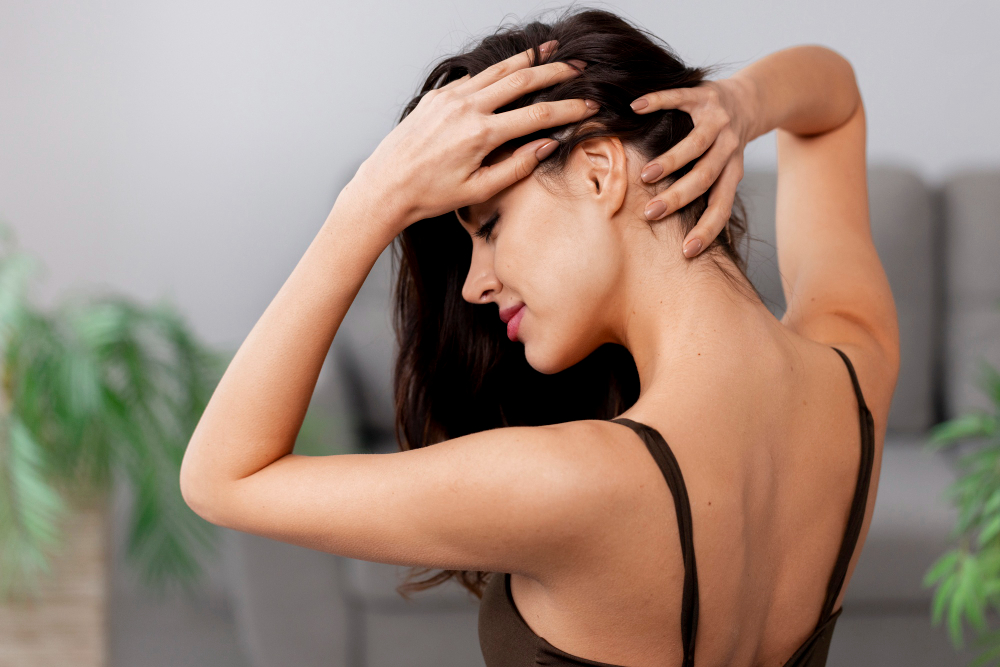
Preventive care is key to maintaining a healthy scalp:
- Avoid harsh ingredients in shampoos and styling products.
- Limit the overuse of mousse, gels, and dry shampoo.
- Hydrate scalp with oils such as moringa or chamomile-infused serums.
- Protect from the sun, cold, and low humidity.
- Maintain hydration and balanced nutrition.
- Schedule regular scalp treatments to restore pH balance.
📌 Tip: Avoid trends like scalp-popping learn why it can worsen dryness.
Treat Your Dry Scalp Today
Dry scalp is common but completely manageable. With the right mix of professional treatments, at-home care, and preventive practices, you can: restore hydration, reduce flaking, and support healthy hair growth.
✨ Take the first step today.
Book a professional scalp treatment with Hāste Urban Hair Spa in Medford, MA, and give your scalp the care it deserves.
FAQ
How can I hydrate my scalp?
You can warm a small amount of coconut oil to massage it into your scalp. Then leave it on for up to 20 minutes or overnight and rinse it using your shampoo.
What is the best oil for a dry scalp?
We recommend adding a few drops of tea tree oil to your shampoo for a healthier hair wash. The oil has anti-bacterial and inflammatory properties that work best for a dry scalp.
How can I remove scalp buildup?
A great way to eliminate scalp buildup is to visit a salon for a detox treatment that removes excess oil, dirt, and product residue. Another way is to exfoliate your scalp using a scalp scrub and massage it with a scalp massager.
How can I tell if I have a dry scalp or dandruff?
Dry scalp is mainly dehydration without inflammation; dandruff involves itching, redness, and yeast imbalance.
Can stress or hormones cause dry scalp?
Yes, stress and hormonal changes impact oil production and barrier function.
Are there shampoos for a dry scalp?
Yes, look for sulfate-free, hydrating shampoos or medicated options from trusted brands like Kerastase.

